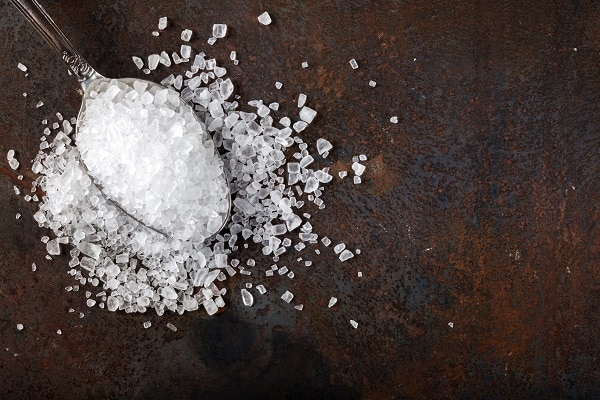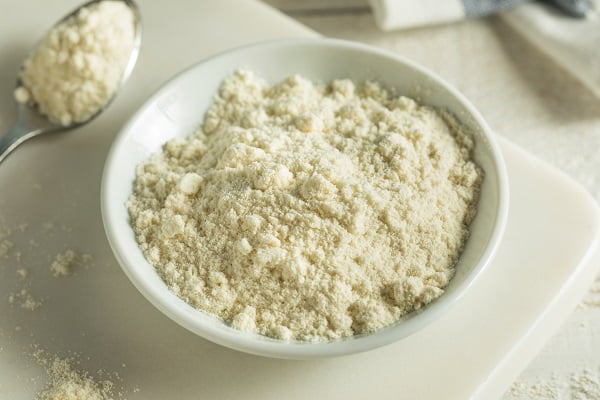Slugs can wreak havoc in a garden, chewing through leaves, flowers, and fruits alike, often leaving a trail of destruction in their wake. This slimy menace may appear harmless at first, but given the right conditions, they can multiply quickly and cause significant damage to a wide variety of plants. It’s crucial for any gardener, be it novice or expert, to employ effective and eco-friendly strategies to mitigate the slug problem. This post will delve into several such strategies, including the use of broken eggshells, certain herbs, and copper tape, offering insights into their advantages and how to properly utilize them.
Contents
Broken Eggshells

Surprisingly, an effective slug deterrent might just be sitting in your kitchen trash right now. Crushed eggshells, with their jagged edges, can be scattered around the base of plants vulnerable to slugs. These sharp fragments create a physical barrier that is discomforting for the soft-bodied slugs to cross. Not only does this prevent the slugs from reaching the plants, but it also recycles waste in an eco-friendly manner, offering a dual advantage.
The benefits of using eggshells don’t stop at slug prevention. They also provide an essential nutrient for plants – calcium. When sprinkled into the soil, these shells decompose over time, gradually releasing calcium that aids in strengthening plant cell walls. Strong cell walls can result in healthier plants that are more resistant to pests and diseases. Therefore, using eggshells not only deters slugs but also contributes to better plant health overall.
Herbs

Certain aromatic herbs, with their strong scents and flavors, can work effectively as a natural slug repellent. Lavender, rosemary, and sage are notable examples. Their intense aroma is usually unappealing to slugs, hence planting these herbs around your garden can serve as a fragrant force field protecting your vulnerable plants from these unwanted visitors.
The practice of interplanting these herbs with other susceptible plants is a beneficial gardening strategy. Interplanting not only diversifies the garden visually but also confuses the slugs and minimizes their impact. Additionally, these herbs provide the gardener with fresh ingredients for the kitchen, making this method a win-win situation.
Copper Tape

Copper tape serves as an effective deterrent to slugs and can be considered a gardener’s secret weapon in slug warfare. When a slug comes into contact with copper, a reaction akin to an electric shock occurs, discouraging the slug from crossing the boundary. Gardeners can wrap this tape around the rim of plant pots or raised garden beds, creating a protective barrier that is difficult for slugs to cross.
It’s important to note that the effectiveness of the copper tape depends on its correct application. For example, if the tape is not wide enough, larger slugs might be able to stretch over it. Therefore, a wide strip of copper tape is recommended. Also, cleaning the tape periodically is crucial to maintain its effectiveness, as accumulated dirt and slime can insulate the slugs from the copper.
Coffee Grounds

An unexpected yet practical use of coffee grounds lies in their ability to deter slugs. Caffeine, in particular, seems to be disagreeable to these slimy invaders. Sprinkling used coffee grounds around plants acts as a barrier, preventing slugs from reaching the foliage.
But that’s not all. Coffee grounds also have an enriching effect on soil health. They add nitrogen – a vital nutrient that supports plant growth – to the soil. They also improve the soil’s structure and help in retaining moisture, proving beneficial for the plants. Thus, utilizing coffee grounds offers an excellent means of recycling kitchen waste and enhancing your garden’s health while dealing with the slug issue.
Salt

The use of salt can be a quick, if somewhat harsh, method of dealing with slugs. Salt dehydrates slugs quickly when it comes into contact with them, proving lethal. However, caution is necessary when using salt as it can be harmful to plants and damage the soil structure if used excessively.
Therefore, it’s crucial to use salt sparingly and strategically. Sprinkling it directly on the slugs or their trails can help limit their population. However, never spread salt directly on the soil or near the plants as it can cause damage. Keep in mind that while salt can be an effective measure in a pinch, it’s not the most sustainable or eco-friendly method, and should be used as a last resort.
Encourage Beneficial Wildlife
In nature, a diverse ecosystem ensures balance, and this principle applies to your garden as well. Inviting animals that feed on slugs can naturally control the slug population. Birds, frogs, hedgehogs, and beetles are all known slug predators. Providing habitats for these creatures, like birdhouses, ponds, or log piles, can invite them into your garden and naturally reduce the slug population.
Additionally, many of these animals offer benefits beyond slug control. Birds, for instance, can help control other pests and spread seeds, fostering plant diversity. Similarly, frogs and beetles contribute to pest control, while hedgehogs can help with decomposition, contributing to soil health. Thus, encouraging beneficial wildlife can enhance both the beauty and health of your garden.
Diatomaceous Earth (DE)

Diatomaceous earth, or DE, is a natural powder made from tiny fossilized aquatic organisms. It’s a non-toxic substance that proves deadly to slugs. DE has microscopic sharp edges that can cut through the slug’s soft body, causing it to dehydrate and die. Sprinkling DE around your plants can effectively keep slugs at bay.
However, using DE requires certain precautions. Although it is non-toxic, it can cause irritation if inhaled or comes into contact with the eyes. Therefore, always wear a mask and glasses when applying DE. Additionally, DE can kill beneficial insects too, so it’s important to apply it strategically and sparingly, avoiding areas frequented by beneficial insects like bees.
Conclusion
Dealing with slugs requires a combination of different strategies. From repurposing kitchen waste like eggshells and coffee grounds to inviting slug-eating wildlife, each method has its own set of benefits. It’s also crucial to remember the importance of sustainable practices to maintain the health of the garden and its ecosystem. After all, a garden is not just a collection of plants; it’s a living, breathing ecosystem that thrives on balance. Through the effective use of these various methods, it’s entirely possible to keep slug populations under control, ensuring that your garden remains lush, healthy, and beautiful.
